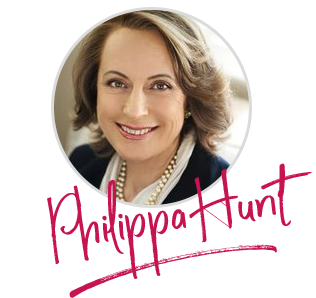Simple Steps on Managing Your Money During COVID19
There are simple steps on managing your money during COVID19 as we all know we have all been affected.
I have listed below some steps and practical solutions to think about or maybe some you have not thought about doing.
Look for ways to reduce your spending
Look at your expenses to see where you can make quick savings. Every little bit will help.
Find quick wins
Look through your bank or credit card statements for the last two months.
Identify anything that isn’t essential, or you can defer for a while. This could be things like subscriptions or memberships.
Reduce your grocery and utility bills
Food and utilities are essentials. To reduce your grocery bills:
- Plan meals in advance and only shop for the ingredients in those meals
- Buy home or own brands where you can
- Buy fruit and vegetables that are in season or on sale
- Cook meals like soups and pasta sauces that have lots of left overs you can freeze for later
- Meat can be expensive, so plan some meals that don’t include meat.
Compare energy suppliers to make sure you’re getting the best deal. Use the Government’s Energy Made Easy website. Or Victorian Energy Compare, if you’re in Victoria.
Request mortgage or rent relief
Your rent or mortgage payments are a priority. There are steps you can take to make them easier to keep on top.
Apply for financial hardship
If you have a mortgage talk to your lender about financial hardship. Some banks are offering 6-month repayment deferrals on mortgages for customers impacted by coronavirus.
You can find a list of bank hardship teams on the Australian Banking Association website.
Ask for rent relief
If you think you’ll have trouble paying your rent talk your landlord or real estate agent.
Ask about reducing or deferring payments for 30 days until you have a better idea of your income.
Put the request in writing so you have evidence that you’ve tried to resolve the situation.
Some more Simple Steps on Managing your money…
Request financial hardship for bills
If you have bills due for essential services such as electricity, gas, phone and water contact your provider straight away.
Explain your situation and tell them you would like to apply for financial hardship.
You may be able to pay the bills in instalments, or get an extension to pay. Also ask if you’re eligible for a utility rebate or voucher.
Bill smoothing
To help you manage future bills arrange for ‘bill smoothing’.
This is where you spread the cost of your bill over regular weekly, fortnightly or monthly payments.
For example, you might pay a set amount of $100 a fortnight towards your electricity bill.
This will help you budget and provide some certainty while you’re living on less.
Credit card and loan repayments
If you have credit card or personal loan payments due, continue to make the minimum repayments if you can.
Then contact your bank’s hardship team to arrange a hardship variation. This may mean reduced interest or repayments, for a set period.
Ask for payment deferrals or plans
Things are tougher than usual for a lot of people. Many companies and organisations are willing to help you.
The sooner you get in touch, the more options you’ll have.
If you have private health insurance, contact your fund. Some insurers are offering premium waivers or suspending memberships for members affected by COVID-19.
Some insurers are also delaying or cancelling their 2020 rate increase.
Your home or car are valuable assets so make sure they’re protected. If you’re struggling to pay your car or home insurance premiums or excess, contact your insurer straight away.
Explain your situation and tell them you would like to apply for financial hardship. For example, they may provide assistance to meet your excess if you have an accident and you’re at fault and need to make a claim.
If you have school, council or body corporate fees due see if you can defer payment or pay in instalments.
The National Debt Helpline explains how to negotiate payment terms.
Plan for the next 3 months
A budget is the best tool you have to put a financial plan in place for the next 3 months.
Use your expected income and spending to create a new budget. It will help you think about your finances in the longer-term and feel more in control.
Revise Your Budget
Check your bank accounts and budget every month see your spending habits and what you may be able to change. Most banks have a budget planner and are many apps to help to take the load off. If you like to write it out do so be in charge have the power and feel good about it. of your bills
The ASIC Money Smart website is a great place to learn about money and plenty of tools to help get control of spending, saving and retirement.
Reference:
Rehttps://moneysmart.gov.au/covid-19/living-on-a-reduced-incomeference:

Philippa Hunt is a Woman on a Mission.
WiseGirls Money Academy was created after working as a qualified Financial Adviser for many years and deciding it was time to assist women who desired to learn and develop the self-empowerment to understand their emotional relationship with money, the skills and knowledge to save and invest. They wanted to learn how to create their own financial future and become financially capable.
The WiseGirls Money Mission is to provide the opportunity and place for growth and development of women of all ages in personal and financial skills in a supported female environment so that they take control of their future to reach their own financial independence.



